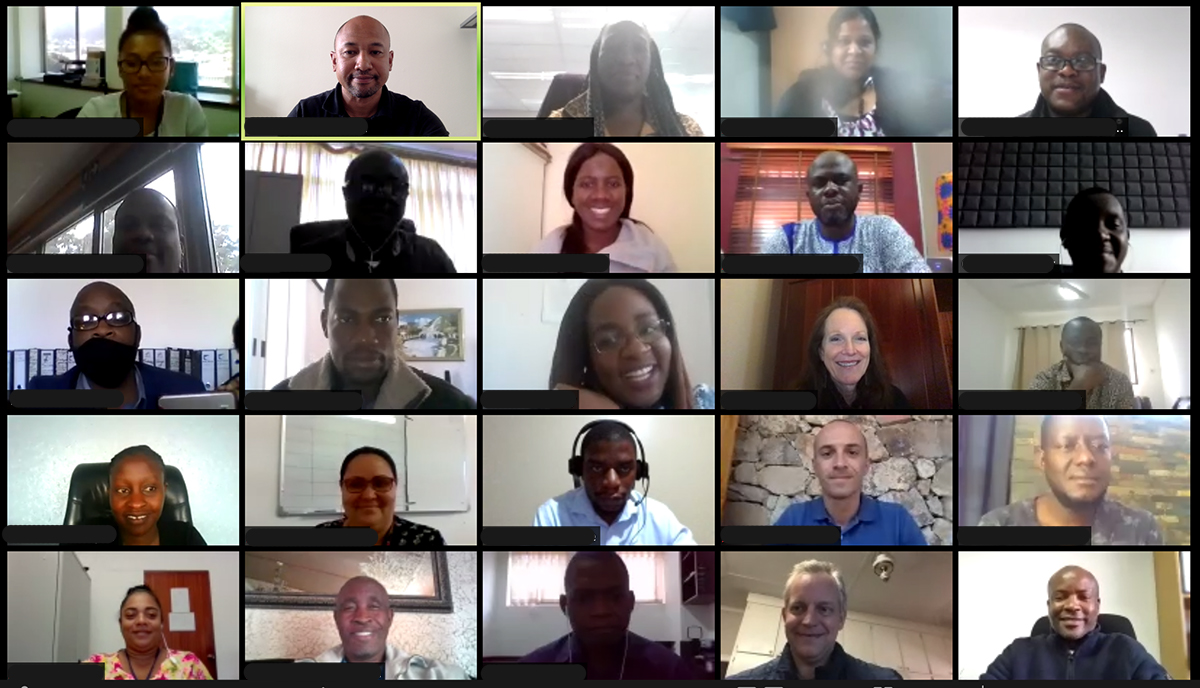Building bridges for anti-corruption cooperation in Africa

Virtual training is helping to build networks and bridges between anti-corruption officials located in different countries – bridges that will help to improve regional coordination and cooperation in cases of financial crime.
For a real-life example, take last week’s online delivery of our flagship Financial Investigations and Asset Recovery training programme in support of the Commonwealth Africa Anti-Corruption Centre (CAACC).
Using Zoom and our new LEARN platform, our International Centre for Asset Recovery (ICAR) training team took 20 practitioners from various anti-corruption authorities in 10 countries through the intensive five-day course.
The participants were mainly investigators, prosecutors and forensic accountants from Botswana, Kenya, Mozambique, Mauritius, Ghana, Nigeria, Rwanda, Sierra Leone, Seychelles and South Africa. They were divided into four groups and encouraged to interact with one another in the interest of improving regional coordination and cooperation.
Breakaway groups worked very successfully on the whole, with some technical difficulties from time to time. The final presentations by each group reflected how well practitioners from different countries had worked together. It was clear yet again that anti-corruption authorities benefit significantly where practitioners with different skillsets and qualifications work together in a multidisciplinary approach.
Pre- and post-training tests conducted via LEARN showed a 41 percent increase in correct answers.
“Excellent and rewarding” is a representative comment from the participants. One pointed out how useful it was that the ICAR trainers themselves have such deep and personal experience in “doing the same as us – investigating and prosecuting offences of corruption and money laundering".
Another wished she’d had the opportunity to take this training 12 years ago when she first started working in the field of special investigations.
A taste for online learning?
Technical difficulties and a lack of experience with video conferencing and online training are common challenges for participants of ICAR training courses. But perhaps this kind of successful experience is a first step to overcoming the difficulties. One participant commented:
“I generally have a phobia for technology and this was my first experience with Zoom, but the facilitators and the CAACC staff made the whole experience very pleasant. I think I deserve an additional certificate. Proficiency in Zoom Certificate. Thank you so so much.”
The participants expressed interest in the Basel Institute’s eLearning courses and were encouraged to use them, either as refresher courses (e.g. Financial analysis using Excel or the Source and Application method) or to learn new skills such as visualising cases and flows of money using the free software yEd.
Our free, hands-on eLearning courses are now all located on LEARN. Simply register on the platform, choose a course and complete it to gain a certificate of completion.
About the Commonwealth Africa Anti-Corruption Centre (CAACC)
The CAACC is a non-profit organisation established in February 2013 in Gaborone, Botswana. It is a partnership between the Commonwealth Secretariat, the Government of Botswana (which is the host country) and the Heads of Anti-Corruption Agencies of the 18 Commonwealth African Countries: Botswana, Cameroon, The Gambia, Ghana, Kenya, Lesotho, Malawi, Mauritius, Mozambique, Namibia, Nigeria, Rwanda, Sierra Leone, South Africa, Swaziland, Tanzania, Uganda and Zambia.
The CAACC provides a platform for improving coordination between and strengthening the capacity of anti-corruption agencies in Commonwealth Africa. It does this through research, training and development, and communications and political affairs.
ICAR’s relationship with the CAACC dates back to 2013, in the very early days of the organisation’s existence. We were pleased to deliver an onsite training programme in August 2017 and are of course thrilled to be able to support the CAACC with this most recent regional training. Although, as one participant commented, “face to face would be even better!”


